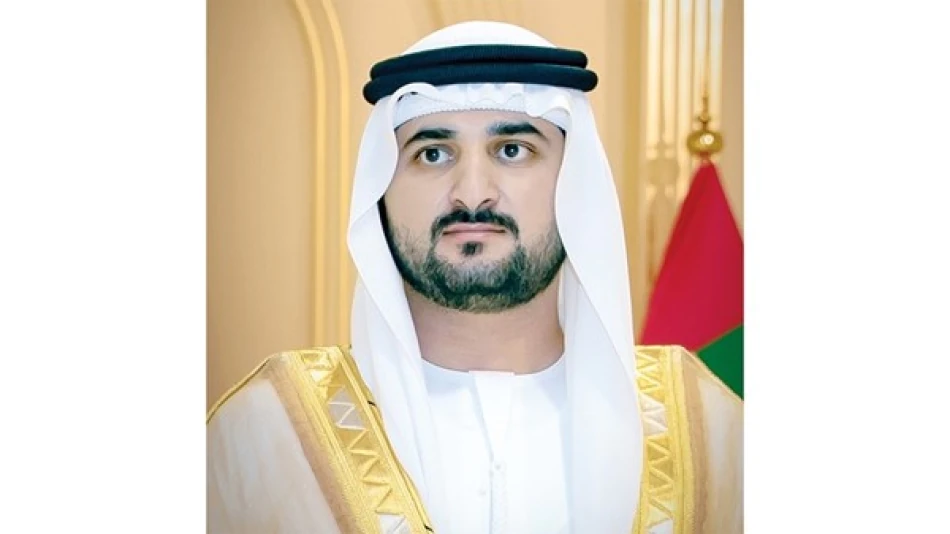
Dubai Financial Centre Records Unprecedented Half-Year Performance, Says Sheikh Maktoum
Dubai Financial Hub Records Explosive Growth as Middle East Emerges as Global Finance Alternative
The Dubai International Financial Centre (DIFC) has delivered its strongest half-year performance in history, adding over 1,000 new companies in the first six months of 2025 and cementing the emirate's position as a serious challenger to traditional financial centers like London and New York. The surge reflects a broader shift of capital and talent toward the Gulf region as geopolitical tensions reshape global finance.
Record-Breaking Numbers Signal Structural Shift
Sheikh Maktoum bin Mohammed bin Rashid Al Maktoum, Dubai's Deputy Ruler and UAE Finance Minister, announced that DIFC registered 1,081 new active companies in the first half of 2025—a 25% year-on-year increase in total active registered firms. Financial services licenses jumped 28%, while the hedge fund sector exploded with 72% annual growth, reaching 85 funds.
Perhaps most telling for the future of finance, fintech and artificial intelligence companies within DIFC grew 28% annually to reach 1,388 firms. This concentration of next-generation financial technology positions Dubai not just as a regional hub, but as a global innovation center competing directly with Singapore and Hong Kong.
The Geopolitical Finance Migration
These numbers reflect more than organic growth—they signal a fundamental realignment of global finance. Since 2022, financial firms have increasingly viewed the Gulf as a stable alternative to traditional centers facing regulatory uncertainty, political volatility, and economic headwinds.
Unlike Singapore's gradual rise over decades or Hong Kong's recent challenges with China tensions, Dubai's ascent comes at a moment when Western financial centers face mounting pressures. Brexit weakened London's European access, while New York grapples with regulatory complexity and geopolitical risks.
Strategic Timing Meets Ambitious Vision
Dubai's D33 economic agenda explicitly targets a position among the world's top four financial centers—a goal that seemed ambitious just five years ago but now appears increasingly realistic. The emirate benefits from several structural advantages: no personal income tax, strategic location between Asian and European markets, and a regulatory framework designed to attract international capital.
The 72% surge in hedge funds is particularly significant. Hedge funds typically locate where they can access the deepest pools of capital and the most sophisticated investors. Their migration to Dubai suggests the emirate is successfully attracting not just regional wealth, but global institutional money.
Market Implications and Investor Calculus
For global investors, Dubai's rise creates new opportunities and considerations. The concentration of fintech and AI companies offers exposure to Middle Eastern innovation beyond traditional energy sectors. Meanwhile, the growing hedge fund ecosystem provides more sophisticated investment vehicles for regional wealth.
Traditional financial centers should take note: Dubai's growth isn't coming from emerging market scraps, but from direct competition for high-value financial services. The emirate's success in attracting both established firms and cutting-edge startups suggests it's building a complete financial ecosystem, not just a regional outpost.
The Bigger Picture: Finance Follows Stability
Dubai's record performance reflects a broader truth about global finance—capital flows toward stability, opportunity, and favorable regulation. As Western centers grapple with political uncertainty and regulatory complexity, the Gulf offers an attractive alternative with clear rules, ambitious vision, and growing market access.
The question isn't whether Dubai will continue growing—the momentum is clear. The real question is how quickly it can scale from regional hub to true global center, and whether traditional financial capitals will respond with reforms of their own or watch their market share migrate eastward.
Most Viewed News

 Layla Al Mansoori
Layla Al Mansoori






